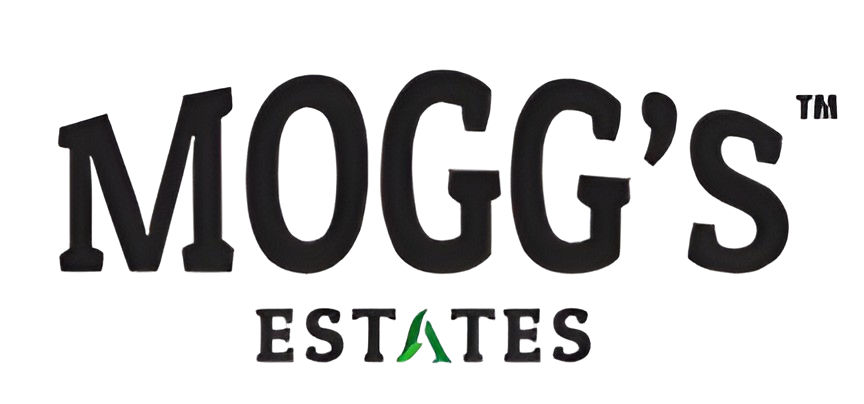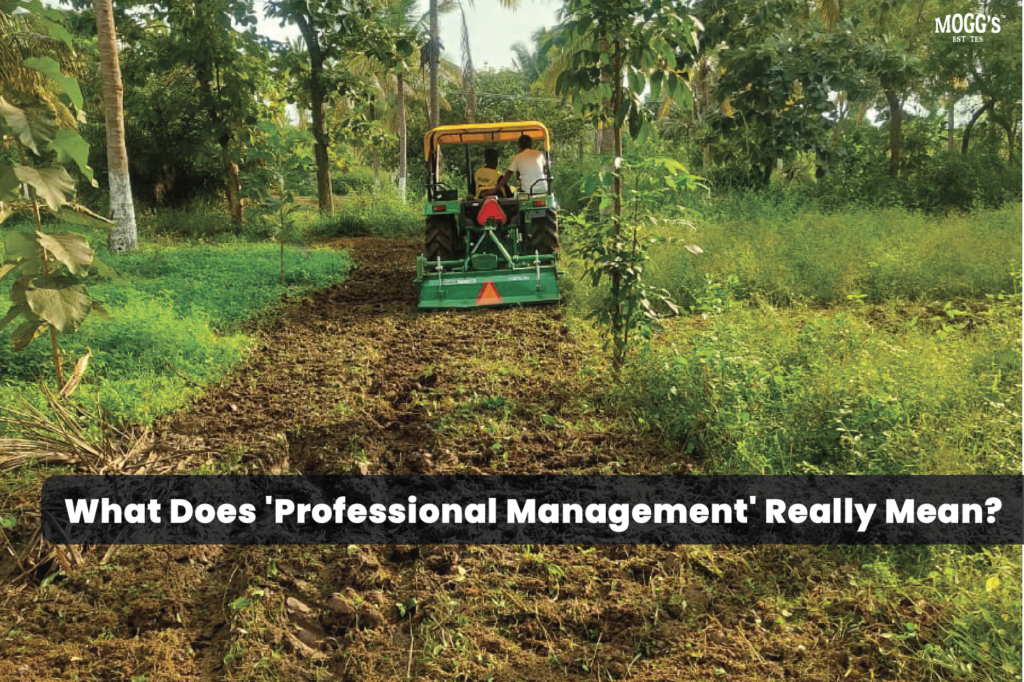When exploring managed farmland investments near Bengaluru, you’ll constantly encounter the term “professional management.” It’s a phrase that gets used frequently in marketing materials and sales conversations, but what does it actually mean in practice? For prospective investors considering projects like Mogg’s Estates managed farmlands, understanding the real substance behind this promise is crucial for making informed decisions.
Beyond the Buzzword:
Professional management in the context of managed farmlands refers to a comprehensive system where experienced agricultural experts handle every aspect of farming operations on your behalf. It’s not simply hiring someone to occasionally water your plants or check on your property. True professional management, as practiced by companies like Mogg’s Estates, involves sophisticated agricultural operations, scientific farming methods, continuous monitoring, and strategic decision-making throughout the year.
The fundamental premise is simple but powerful. You own the land and receive the benefits of ownership, including agricultural yields and land appreciation, while experts who understand farming intimately handle all the complex, time-consuming operational aspects. This model transforms farmland from an active investment requiring constant attention into a passive investment that generates returns without demanding your daily involvement.
The Core Components of Professional Management
Understanding what professional management encompasses helps investors appreciate the value they’re receiving. At its foundation, professional management includes several critical components that work together to ensure productive, sustainable farming operations.
Soil management forms the bedrock of successful agriculture. Professional teams at companies like Mogg’s Estates conduct regular soil testing to understand nutrient levels, PH balance, and overall soil health. Based on these scientific assessments, they implement appropriate interventions, whether adding organic matter, adjusting acidity, or introducing beneficial microorganisms. This isn’t guesswork but data-driven soil science that maintains and improves land productivity over time.
Crop selection and rotation represent another crucial element. Professional managers don’t simply plant whatever seems popular at the moment. They analyse soil conditions, seasonal factors, water availability, market demand, and long-term land health to select optimal crops. They implement crop rotation strategies that prevent soil depletion, naturally control pests, and maximise yields across multiple growing seasons. This strategic approach protects your investment while optimising returns.
Water management in professionally managed farmlands involves sophisticated irrigation systems, typically drip irrigation, that deliver precise water quantities directly to plant roots. This conserves water while ensuring optimal plant hydration. Professional managers monitor weather patterns, adjust irrigation schedules seasonally, and maintain all equipment to prevent failures. At Mogg’s Estates, water management also includes rainwater harvesting systems that capture monsoon rains for use during drier periods, enhancing sustainability and reducing operational costs.
Organic Pest and Disease Management
One area where professional management truly shines is in pest and disease control. Traditional farming often relies heavily on chemical pesticides that harm soil health, reduce beneficial insect populations, and leave harmful residues. Professional managers at operations like Mogg’s Estates take a different approach.
Integrated pest management combines multiple strategies to control pests organically. This includes encouraging beneficial insects that prey on harmful ones, using natural pest repellents derived from plants, implementing companion planting where certain crops protect others, and maintaining biodiversity that creates natural pest control systems. When intervention is necessary, organic approved treatments are used minimally and strategically.
Disease management follows similar principles. Rather than waiting for diseases to appear and then treating them, professional management emphasizes prevention through proper spacing, adequate airflow, appropriate irrigation that doesn’t promote fungal growth, and soil health that produces naturally disease-resistant plants. This proactive approach reduces losses and maintains organic certification for your produce.
Harvest and post-harvest operations:
Professional management extends beyond growing crops to harvesting and marketing them effectively. Knowing exactly when to harvest each crop for optimal quality and market value requires expertise that professional managers possess. Harvesting too early reduces yields, while harvesting too late can diminish quality and marketability.
At Mogg’s Estates, the professional management team coordinates harvest operations, ensuring crops are collected at peak ripeness. Post-harvest handling, including cleaning, grading, and packaging, is managed to maximise value. Marketing connections that professional managers have developed over the years ensure your produce reaches appropriate buyers at fair prices, whether local organic markets, restaurants, or processing facilities.
This marketing aspect of professional management is often underestimated by new farmland investors. Having excellent crops is valuable only if you can sell them profitably. Professional managers leverage their networks and market knowledge to secure the best possible returns for plot owners.
Maintenance and Infrastructure Management
Farmland requires ongoing maintenance that goes beyond crop cultivation. Fencing needs repair, irrigation systems require servicing, access roads need maintenance, and various farm structures demand attention. Professional management includes all these aspects, ensuring your property remains in excellent condition without requiring your personal involvement.
At Mogg’s Estates properties, this extends to maintaining common amenities, landscaping, and ensuring the overall property presents well. This protects and enhances your investment value while providing an attractive environment for your visits.
Transparency and communication
Perhaps the most important yet often overlooked aspect of professional management is communication and transparency. Real professional management means regular updates about activities on your plot, transparent reporting of expenses and revenues, accessible communication channels for your questions, and scheduled opportunities to visit and see operations firsthand.
Mogg’s Estates exemplifies this transparency by providing plot owners with regular updates through reports and photographs, maintaining open communication about all farming decisions, offering detailed financial accounting of costs and returns, and welcoming plot owners to visit anytime and participate in farming activities if they wish.
This transparency builds trust and helps investors understand exactly what they’re receiving for their management fees. It transforms the relationship from a black box where you hope things are being handled properly to a clear, accountable system where you can verify operations and results.
The professional team behind the management
Professional management is only as good as the professionals delivering it. This means having qualified agronomists who understand plant science and soil management, experienced farm supervisors who handle daily operations, specialised technicians for irrigation and infrastructure, organic farming experts certified in sustainable practices, and marketing professionals who connect produce to buyers.
Companies like Mogg’s Estates invest significantly in building and retaining qualified agricultural teams. These professionals bring years of farming experience, formal agricultural education, and specialised training in organic and sustainable practices. Their expertise is what transforms farmland ownership from a risky, complicated venture into a smooth, profitable investment.
What professional management is not:
Understanding what professional management should not include is equally important. It’s not occasional visits by unqualified staff with no agricultural background. It’s not generic farming without regard to your specific soil conditions or plot characteristics. It’s not a lack of transparency where you never know what’s happening on your land. And it’s not minimal involvement that leaves your land underutilized or poorly maintained.
When evaluating managed farmland opportunities, ask detailed questions about what their professional management actually includes. Request to meet the agricultural team, ask about their qualifications and experience, understand the specific activities they perform throughout the year, and review sample reports they provide to plot owners.
The value proposition:
Professional management transforms farmland investment from something that demands expertise, time, and constant attention into a passive investment that delivers both financial returns and lifestyle benefits. For busy professionals in Bengaluru who want to own agricultural land but lack farming knowledge or time to manage it themselves, professional management makes farmland ownership realistic and rewarding.
Companies like Mogg’s Estates have refined this model, creating comprehensive management systems that handle every detail while keeping plot owners informed and involved at the level they choose. This is what professional management really means, not just a marketing phrase but a complete agricultural service that protects and enhances your farmland investment while requiring minimal involvement from you.
When you understand what true professional management encompasses, you can evaluate managed farmland opportunities more effectively and choose developers who deliver genuine value rather than just promising it.




